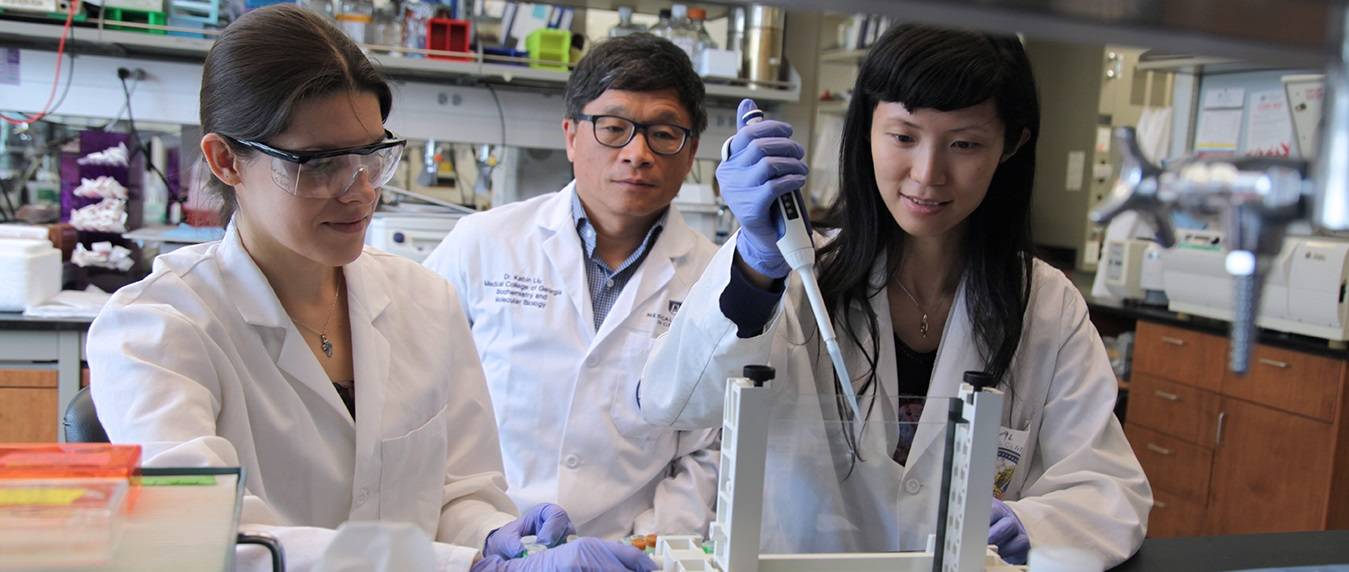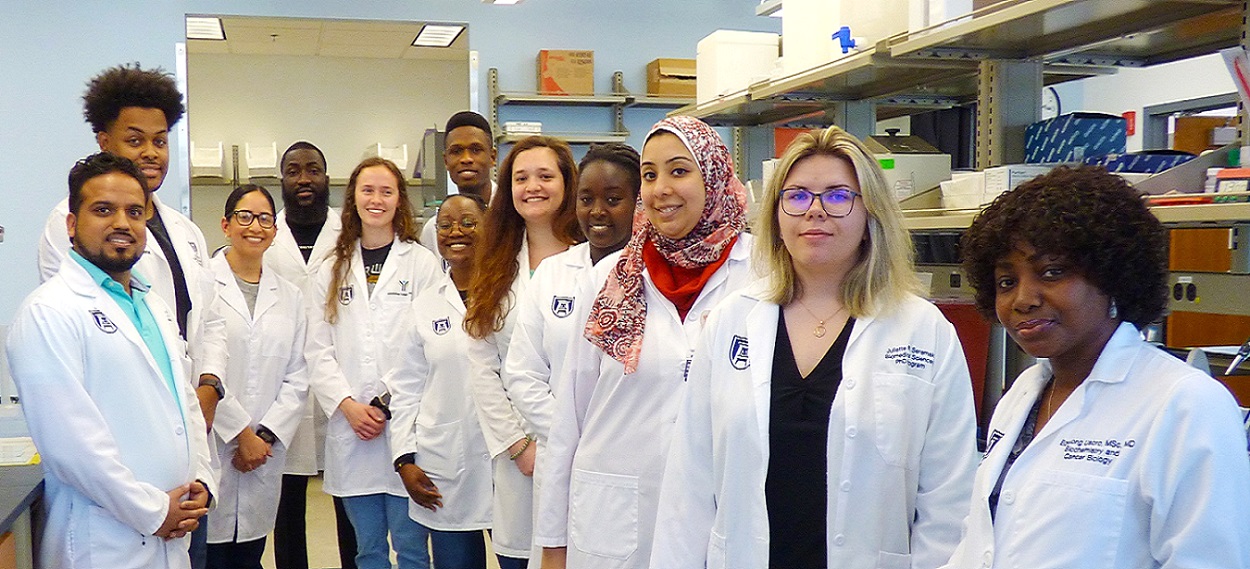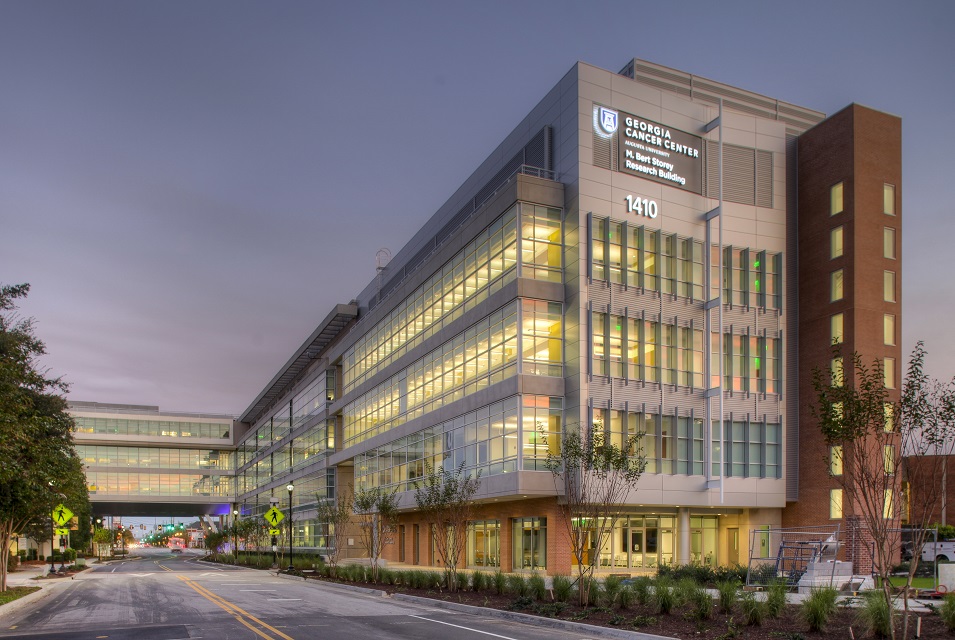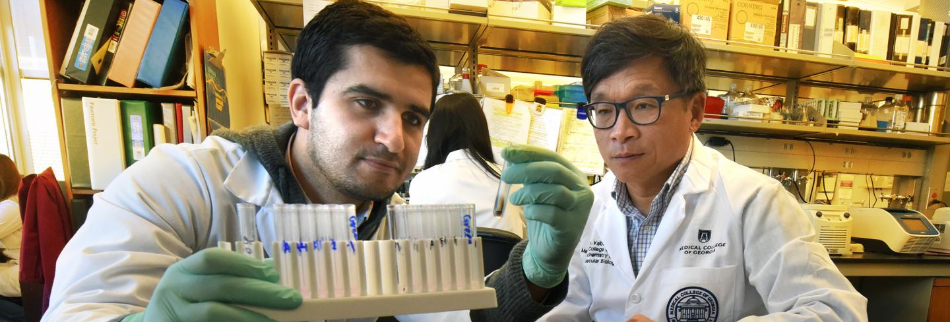
Department of Biochemistry & Molecular Biology
Established in 1829, the Medical College of Georgia Department of Biochemistry and Molecular Biology, or BMB, is an academic home to interdisciplinary translational research for disease detection, prevention and treatment.
We are delighted that you have decided to visit our department’s website. Our mission also includes the education and mentoring of future researchers, physicians and physician-scientists and service to the AU and greater scientific community.
The research mission is focused on inventing better diagnostics and newer targeted therapies for the benign and malignant diseases of the bladder, brain, breast, eye, gastrointestinal tract, kidney, liver, and prostate. The research areas encompass biomarkers, chemoprevention, DNA damage and repair, drug resistance, the epigenome, immunotherapy, the microbiome, molecular signaling, natural products, protein modifications and targeted therapy. Our faculties are supported by major funding agencies, and the insight gained by their work has been published in reputable peer-reviewed journals.
Contact Us
Biochemistry & Molecular Biology
Health Sciences Campus
GCC - M. Bert Storey Research Building
706-721-3271
Cancer Research Center, CN-1177
706-721-6608
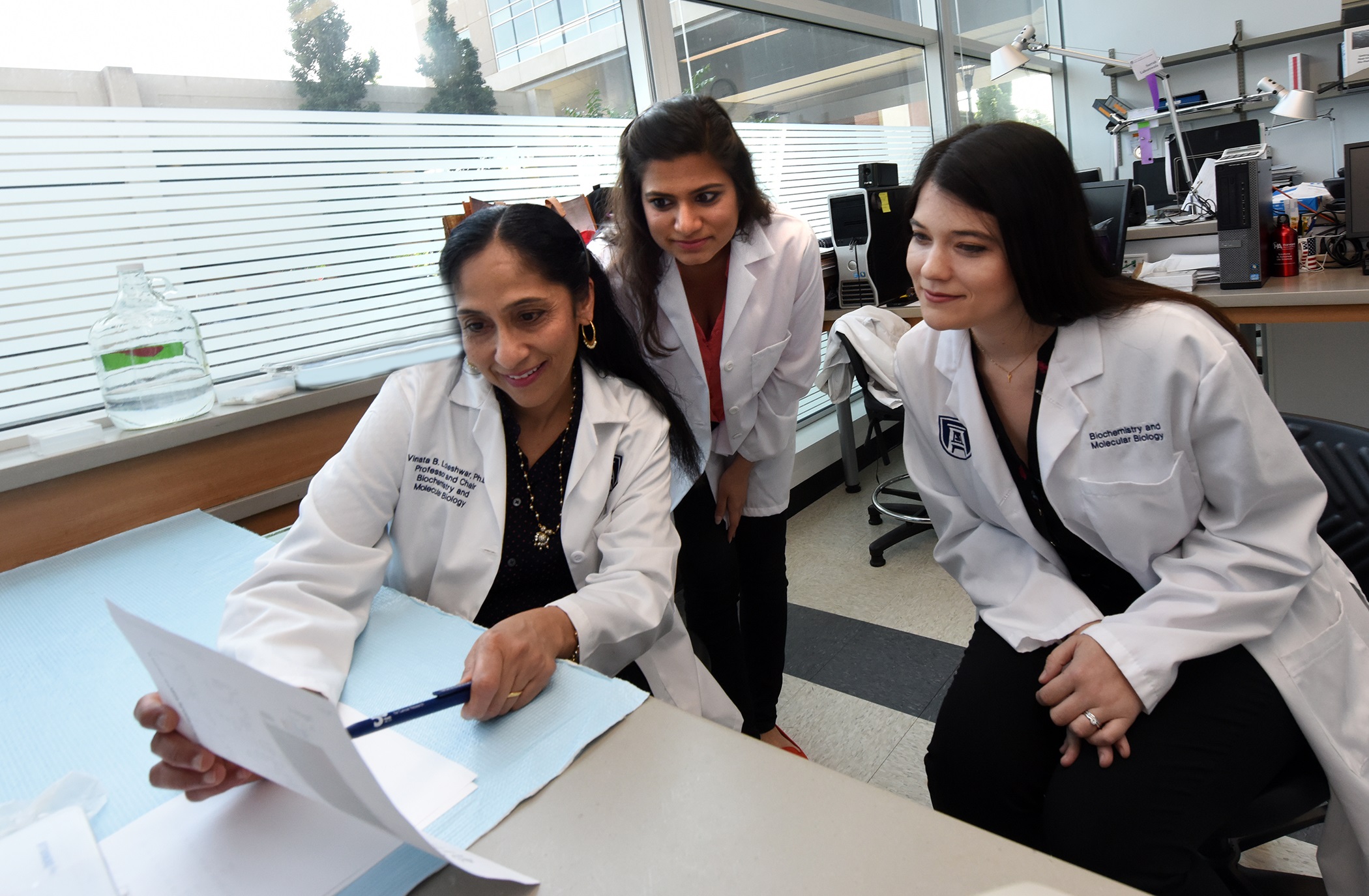
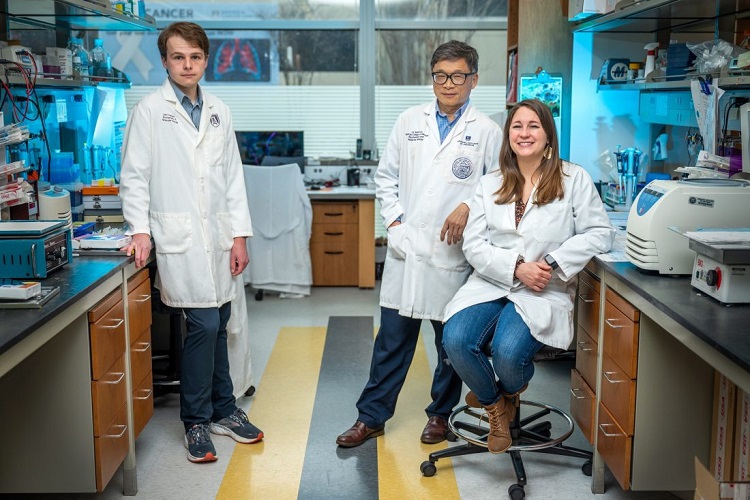
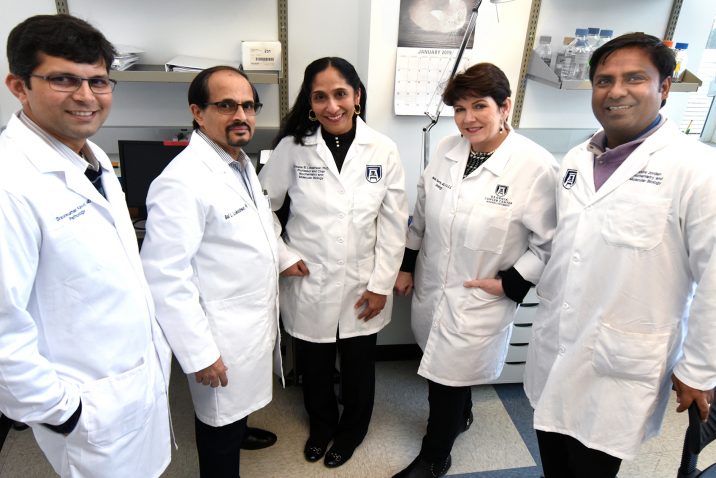
Home to the Biochemistry and Cancer Biology Graduate Program, the BMB Department offers PhD degrees, along with a combined MD-PhD program available to medical students. The students move on to competitive careers in academia, industry, and governmental agencies. The education mission is also served by faculty participation in undergraduate and graduate medical education, as well as the Student Educational Enrichment Program (SEEP).
Working together as a cohesive academic family, the faculty, staff, students and fellows are committed to advancing BMB’s tripartite mission.
Other Information
BMB News
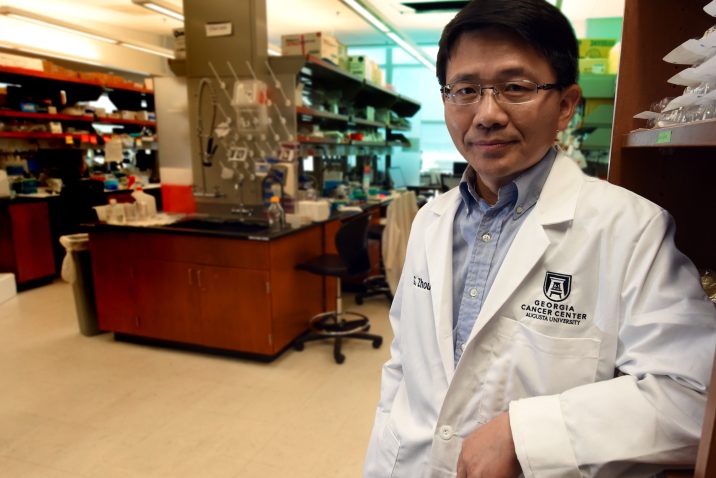
Could salmonella be used to treat cancer? Georgia Cancer Center researcher sees promise
Could salmonella be used to treat cancer? Georgia Cancer Center researcher sees promise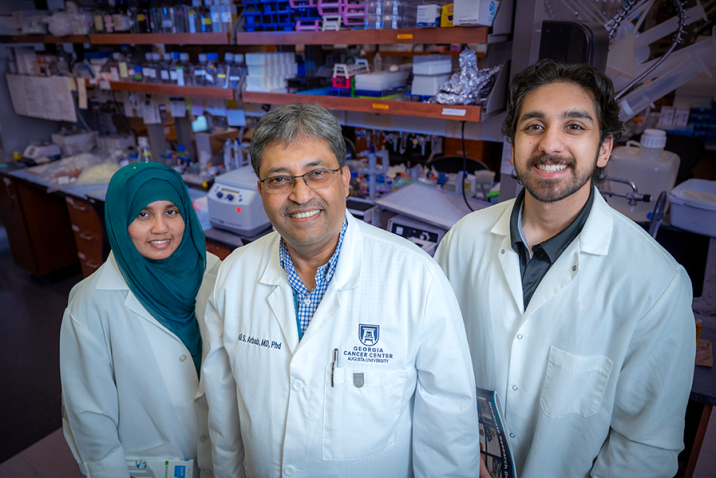
A collaboration across Georgia could lead to a way to prevent metastatic cancer
A collaboration across Georgia could lead to a way to prevent metastatic cancer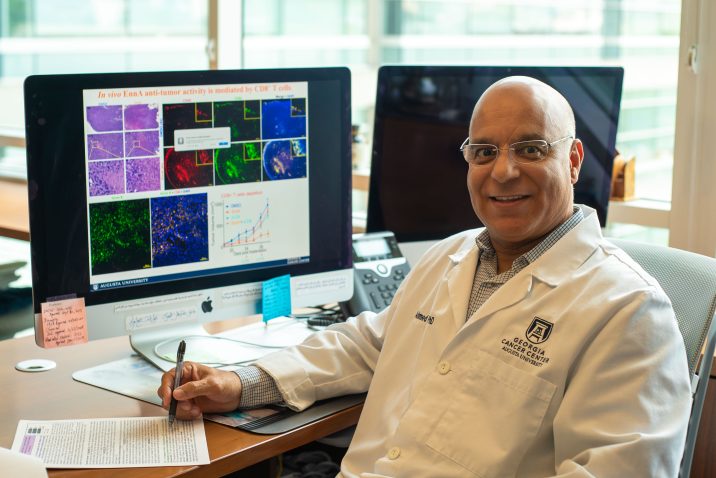
A glimpse into 22 years of research with Ahmed Chadli, PhD
A glimpse into 22 years of research with Ahmed Chadli, PhD
